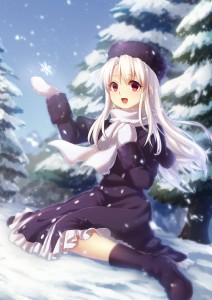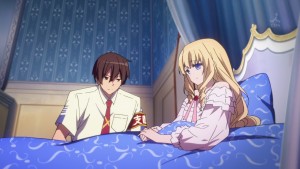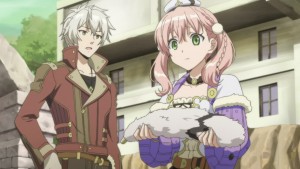
In the past, I have written several opinion pieces on how a person perceives an Anime as a good one and what is considered a good adaptation. However, I feel that expectations on how the viewers perceive an adaptation can vary depending on prior knowledge of the source material and how the show is being made.
Making an adaptation is a very difficult task, especially since most shows typically have only 12 to 24 episodes to cover the main story. There are two known approaches that a production team can take to achieve this: a loose adaptation, which is a mix of original and plot related material or one that follows the source material. Of course, each has its own advantages and disadvantages and it is entirely up to the author since they are usually involved with the project even though there are exceptions.

First, let’s take a look at loose adaptations. This approach mostly mixes some of the main story with original. It commonly found in continuously airing shows like Pokémon or video game adaptations, although they have been used manga, light novel and visual novel adaptations. Moreover, a loose adaptation allows the author make changes that he/she was not satisfied while creating the source material. For instance, the author of Amagi Brilliant Park made some changes in the anime adaptation such Latifia’s appearance since he felt that making her blind limited her appearance in the source material. Of course, the author might not care at all and just leave the production team to adapt the show whatever way they want. Because of this, loose adaptations tend to receive a bad reputation among viewers (more on that later).
On the other hand, an adaptation that follows the source material will be close to the original with a few to some changes. While is reasonable that some parts will be changed or removed because it does not translate well or it can not fit in 24 episodes, it will be reasonably close to the original. Also, it will only cover up to a certain volume or chapter for a given season. In most cases, the author will be involved. For visual novels, only the main aspects of each arc will be covered with the romantic interactions removed except for the main heroine, unless the show uses an omnibus format.
With that, can both methods be considered a faithful adaptation? It depends on the type of source material and the method taken. While people have some disdain towards loose adaptations since it does not faithfully follow the source material, especially in regards to visual novels, manga and light novels, is it truly inferior to the source material? Not necessarily. The problem is always with the execution since not many directors can create one that is enjoyable, especially if the author is not involved. Because of this, finding a good one is rare.

For video games, loose adaptations can be considered faithful because it is nearly impossible to adapt everything due to the interactive nature of the medium. As a result, these adaptations are geared more towards generating interest for people who are not familiar with the franchise while catering to existing fans. With that, faithfulness in that case should be focused on things such as the setting, how much of the main plot is covered from the game and how the characters are portrayed. For instance, while the anime adaptation of Atelier Escha and Logy has a good amount of original story such as having an episode focusing entirely on Escha’s tail, it still covered most of the important aspects from the actual game. While I have played most of it, I was satisfied by how the adaptation was executed despite having some flaws.
How does prior experience of the source material change the viewer’s perspective on the adaptation? While I usually don’t experience the source material before watching the show like most viewers, I have with the adaptation for Atelier Escha and Logy. Since I played most of the game before watching it, I was already familiar with the characters and the story to piece the missing parts together. On the other hand, it can have some downsides because the viewer will know what aspects of the story got changed or taken out that he or she might not like. Not only that, the viewer might not be satisfied by how the character is portrayed on-screen.
So, what if you watch a faithful adaptation before experiencing the source material? It depends since the production team in most cases will take account that a lot of viewers have not experience the source material yet. Even so, there may be some aspects a viewer might find confusing because details are left out or only people who are familiar with it will get the reference. The first episode of Kantai Collection is a good example of this. Even though the story is original, there were some people who complained about the first episode because they did not know what was going on in the battle.
While reading some background information on the franchise beforehand can help alleviate this for some, for others, not so much. For instance, while I find Red Data Girl interesting, there were some important details missing from the show. If that were the case, I would probably enjoy that show more if I read some of the source material in advance.
As a whole, does having some knowledge of the source material affects the anime viewing experience? To me, I think it has some effect since viewers can catch some of the details or references that others will not get. At the same time, it can cause someone to have high expectations for a show and if something is changed or left out, he or she might become dissatisfied unless they are watching it with an open mind.
At the end of the day, people have to understand that it’s not possible to create an adaptation 100% close to the source material since there are constraints on time and resources. Moreover, the director might hold a different perspective on how he or she wants to adapt the source material. Whether or not he or she experiences the source material beforehand, the viewer should watch with an open mind. That will make the viewing experience better in the end. While being faithful to the source material can be a good thing, I think people should also focus on the execution since that will ultimately determine how good or bad a show is. Of course, if the source material is bad to begin with, I do not need to explain it any further since the adaptation in most cases won’t improve on it that much.
With that, what are your experiences with having prior knowledge of the source material while watching a show? Does it have a positive or negative impact on the viewing experience?


Speaking personally, my ideal adaptation would be one that is able to stand on it’s own without any outside context at all. Bonus points if it carves out a unique identity of it’s own, rather than simply copy-pasting everything from the original work.
I do agree with some points especially for the fact that not everything necessarily translate well when it’s adapted into animation as one can’t show 100% detail. It’s always better to make some changes so that it will work better when shown as an Anime rather than make a carbon copy of the source material. As mentioned earlier, there might be some things the author might have regret that he/she might want to change in anime.
Above all, I also agree that adaptations should stand on it’s own, which is something that is difficult since the adaptation is based off the source material while original stories tend to get a free pass since it’s not based on anything. At the end of the day, execution is key and of course, there are poorly executed original titles like Glasslip. I think execution is what ultimately in terms of how good the story, animation and character development is.
Yup, you hit the nail on the head. As long as it’s effective, I don’t care much what it is or isn’t based upon.